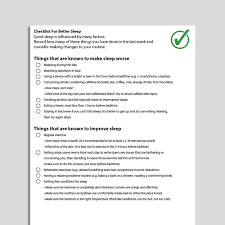The Importance of Using a Tracker
In today’s fast-paced world, keeping track of important information and data is crucial for staying organized and efficient. One tool that has become indispensable for many individuals and businesses is a tracker.
A tracker is a software or device that helps monitor, record, and analyze various types of information. Whether it’s tracking your fitness goals, monitoring your expenses, or managing project timelines, a tracker can provide valuable insights and help you make informed decisions.
One of the key benefits of using a tracker is the ability to set specific goals and track your progress towards achieving them. By inputting data regularly and reviewing the generated reports, you can identify patterns, trends, and areas for improvement.
Trackers are also useful for enhancing accountability and motivation. When you have a visual representation of your progress, you are more likely to stay committed to your goals and push yourself to reach new milestones.
Furthermore, trackers can help you identify inefficiencies in your routines or processes. By analyzing the data collected over time, you can pinpoint areas where adjustments are needed to optimize performance and productivity.
Whether you’re an individual looking to improve your personal habits or a business seeking to streamline operations, incorporating a tracker into your daily routine can lead to increased efficiency, better decision-making, and ultimately, greater success.
Embrace the power of tracking today and unlock your full potential!
Understanding Trackers: Benefits, Types, and Productivity Enhancements
- What is a tracker and how does it work?
- What are the benefits of using a tracker?
- What types of information can be tracked with a tracker?
- Are there different kinds of trackers available in the market?
- How can trackers help improve personal or business productivity?
What is a tracker and how does it work?
A tracker is a tool, typically in the form of software or a device, that is designed to monitor and record specific data or information. It works by collecting input from various sources, such as user inputs, sensors, or external data feeds, and then processes this information to generate reports, insights, or visual representations. The primary function of a tracker is to help individuals or organizations track progress towards goals, monitor trends, and make informed decisions based on the data gathered. By utilizing a tracker effectively, users can gain valuable insights into their habits, behaviors, or processes and take proactive steps to improve efficiency and achieve desired outcomes.
What are the benefits of using a tracker?
Using a tracker offers numerous benefits that can enhance various aspects of your life. One of the key advantages is the ability to set and monitor specific goals, allowing you to track your progress and make informed decisions based on the data collected. Trackers also promote accountability and motivation by providing visual representations of your achievements, encouraging you to stay committed and strive for continuous improvement. Additionally, trackers help identify patterns and inefficiencies in your routines or processes, enabling you to make necessary adjustments for increased efficiency and productivity. Overall, incorporating a tracker into your daily life can lead to better goal attainment, improved performance, and enhanced decision-making capabilities.
What types of information can be tracked with a tracker?
A tracker can be used to monitor a wide range of information across various aspects of life. Common types of information that can be tracked with a tracker include fitness metrics such as steps taken, calories burned, and heart rate. Additionally, trackers can monitor sleep patterns, water intake, and exercise routines to help individuals maintain a healthy lifestyle. In a business setting, trackers are valuable for tracking project timelines, task progress, expenses, and team performance. By capturing and analyzing data in real-time, trackers enable users to make informed decisions and optimize their personal or professional endeavors effectively.
Are there different kinds of trackers available in the market?
Yes, there are various types of trackers available in the market to cater to different needs and preferences. From fitness trackers that monitor your physical activity and health metrics to expense trackers that help you manage your finances, the options are diverse. GPS trackers can be used to track the location of vehicles or personal belongings, while productivity trackers can assist in time management and task organization. Additionally, there are specialized trackers for monitoring sleep patterns, water intake, mood fluctuations, and more. With advancements in technology, the range of available trackers continues to expand, offering users a variety of tools to track and improve various aspects of their lives.
How can trackers help improve personal or business productivity?
Trackers play a vital role in enhancing both personal and business productivity by providing valuable insights and data analysis. For individuals, trackers can help monitor daily habits, such as exercise routines or time management, leading to improved accountability and motivation. By tracking progress towards personal goals, individuals can identify areas for growth and make informed decisions to optimize their performance. In a business setting, trackers can streamline processes, track project timelines, and monitor key performance indicators to ensure efficient operations. By leveraging the data collected through trackers, businesses can identify bottlenecks, allocate resources effectively, and make strategic decisions that drive productivity and success.



